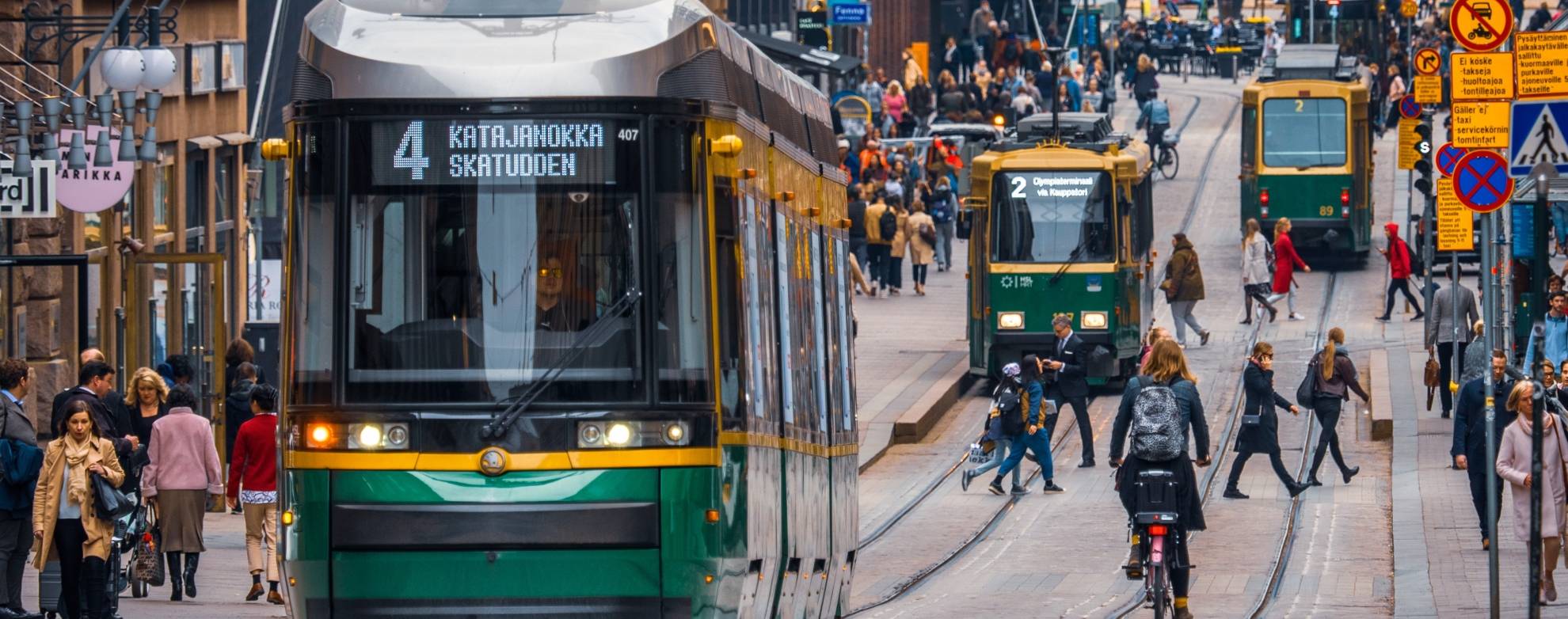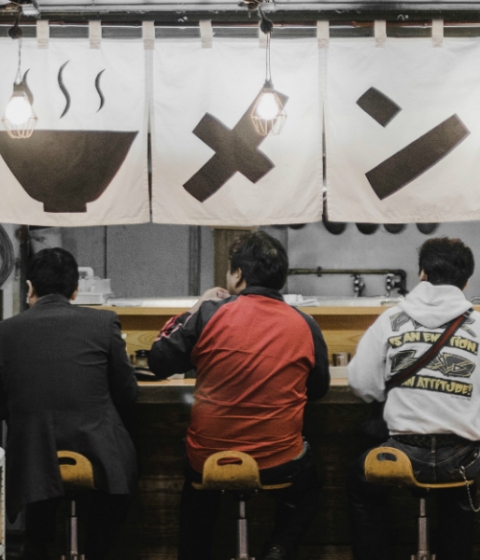Pros and cons of expat life in Helsinki

Helsinki has been the capital of Finland since the modern country was created in 1917, following centuries of occupation by alternately Sweden and Russia. Throughout its history, it has been a centre of commerce, playing an active part in the lucrative Baltic Sea maritime trade. Now, as a modern capital, the commercial spirit is still strong with many large European companies represented and a variety of employment opportunities luring expats from abroad.
But what does modern-day Helsinki offer them? One of the world’s most northerly capitals, it has a more challenging climate than many other expat destinations, but the cultural, economic and social richness of the city ensure this is no frozen outpost. We take a look at the pros and cons of expat life in Helsinki.
Pros: nature on your doorstep
While Helsinki is a major city itself, one of the main reasons expats love it is the countryside around it. Finland is the eighth largest country in Europe, yet this large area – along with its 188,000 lakes – counts a population of just 5.5m people. If the entire population went swimming at the same time, there would only be 30 people in each lake – and the largest, Lake Saimaa, is only slightly smaller than Los Angeles.
Finland also has the cherished institution of “Everyman’s Rights”, allowing anyone to roam the countryside, without landowner permission. Walkers (or canoers and campers) go where they please, but they do so respectfully and no one leaves litter.
During the summer, many Finns enjoy a few weeks at lakeside cottages, which are easy to rent. Expats who do not use vacation entitlement to return home, will find summer breaks to the Finnish countryside a soul-restoring experience. Just make sure you pack mosquito repellent...
Michael Cedercreutz, Executive Chairman of Victor EK Moving Ltd, Helsinki:
Having assisted hundreds of expats moving to and from Finland, I have yet to meet the first one who hasn’t enjoyed their stay in Finland. This says a lot! I also strongly recommend expats to see “outside Helsinki”. Tampere for example, is a thriving, fast-growing city, located in beautiful scenery and surrounded by lakes.

Cons: watch out for the winter
The winters in Helsinki are very hard and very long. The average temperature in January is -3ºC and the winter nights last up to 19 hours. Bear in mind that this is balmy by comparison to the rest of Finland. In the Lapland town of Salla, the self-proclaimed “coldest town in Finland”, temperatures drop as low as -50ºC.
Salla is in the North of the country where expats would need to go to see one of Nature’s most amazing spectacles: the Aurora Borealis or Northern Lights. According to Finnish meteorological authorities, in northern Lapland there is an 80% chance of seeing the lights on a clear winter evening; in Helsinki that likelihood is reduced to 5%.

The flip side of the high latitude, of course, is that the sun does not set in summer until the early hours of the morning. Blackout blinds or heavy curtains are fitted as standard in Helsinki homes to ensure a good night’s sleep, but expats often prefer to enjoy the ambiance of a Helsinki summer evening; outdoor concerts are frequent and varied, while bars and restaurants serve well into the small hours in the bustling and picturesque city centre.
Pros: free education and healthcare
Finland is a very progressive and liberal country, which not only makes its capital city very accepting of expats of all kinds, it also means there is an excellent social support infrastructure. Expats should not fear expensive medical bills since the state healthcare system is of very high quality and free to residents. The same goes for schools: education is free, although expats often note that teaching methods and schooling systems are different to those back home. Nonetheless, standards of education in Finland are world-renowned.
Mikko Loikkanen, Head of International Services at Niemi Services Ltd, Helsinki:
Having lived abroad with children gave me a new level of appreciation for things that work well in Finland. In a family with two working parents, the fact that we have a daycare system that provides relatively inexpensive service for all children up to 9 hours a day 5 days a week in quite exceptional.
And to those who say that the local weather might not be to their taste: we say in Finland, “it’s just a matter of how you dress”, so daily activities outside are the norm all year round, with quick access to pristine nature. One could almost jump on skies in winter at Helsinki central railway station and ski all the way up to Lapland in near forest conditions, mostly uninterrupted thanks to the Helsinki “central park” recreational park area. And with the lowest population density in Europe, you won’t run into too many people along the way!
Cons: high taxes, high prices
The excellent social infrastructure is of course funded through taxes, which may seem high to many expats. The basic average salary tax in Finland is 36% and VAT is charged at 24%, making some goods and services seem expensive. Accommodation, in particular, can be pricey, especially in Helsinki’s more fashionable central districts.
The city has many fine restaurants, but these too cost more than those in many other European cities. Some advisors suggest heading out to slightly more Bohemian suburbs such as Kallio for better value.

Pros: clean and safe
While expats may complain about the high taxation, the well-funded city authorities ensure that Helsinki is a clean and safe place to live. The city boasts a very low crime rating according to Numbeo.com of 26 (compared to 42 and 55 for Berlin and Paris respectively).
The city parks are clean (volunteer groups ensure there is no litter) and the air quality is excellent. If you need proof, you can even track it in real time on the city’s Environmental Services authority website.
Mattias Sjöberg, CEO of Travelcargo International Removals, Helsinki:
Over the last years, restaurant life in Helsinki has grown exponentially and the city has become something of a "foodie's paradise", reflecting the multiculturalism and richness of Finland´s capital. Young and innovative chefs have opened restaurants all around the city, transforming Helsinki into a marvelous place to enjoy and discover new tastes and technique. Some of my favourite dining spots are: Olo restaurant, for top level modern Scandinavian dining; Fisken Pa Disken, the perfect stop after a busy day; and one of my absolute favourites: Farang, for modern South-East Asian food.
Cons: the language
To most outsiders, Finnish is a baffling language. Unrelated to the Scandinavian languages, which are Germanic in origin, Finnish is a Uralic language and therefore represents a steep learning curve to most expats. However, it is not the only language you will hear in Helsinki. For historical reasons, Swedish is also an official language and the vast majority of Finns speak excellent English.

Not for the faint-hearted
Is the Helsinki experience for you? Most Helsinki expats say that the Finnish experience is incomplete without enjoying the great outdoors that surrounds the city. If long walks and bracing winter weather are not for you, you may find the high-latitude climate and al fresco culture of Finland challenging (although one blogger even lists 40 things to do indoors in Helsinki during the winter).
Nonetheless Helsinki remains a clean, sophisticated and well-organised city with much to offer expats, who will enjoy the city’s excellent amenities, beautiful waterside setting, and thriving social and business scene.



